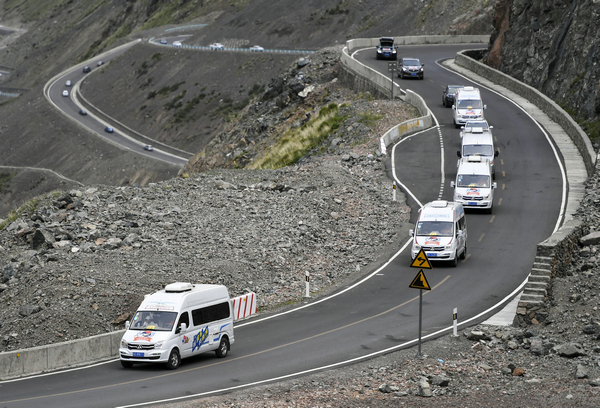Self-driving the new way to holiday
Getting behind the wheel surged as a preferred travel option during the COVID-19 outbreak


The COVID-19 outbreak has not only changed people's daily lives but altered their preferences for modes of travel. Self-driving tours, thanks to their greater privacy and health safety options, have grown to be a popular choice for travelers.
Shattered tourism
Hard hit by the novel coronavirus outbreak since early last year, the global tourism industry has seen losses of up to $1.3 trillion so far, according to figures released by the World Tourism Organization last month.
Hampered by the global economic downturn, the domestic tourism market is predicted to show negative growth of 52 percent last year, when final figures are released. Revenue for the year is expected to total 2.76 trillion yuan ($428 billion) compared with 6.6 trillion yuan for the previous year, according to the China Tourism Academy.
With inbound and outbound group tourism suspended and group travel to domestic destinations still under strict controls, self-driving tours have boomed over the past year.
Figures from Qunar, an online travel agency, show the sector saw its first recovery as early as May. Reservations for self-driving packages for the five-day May Day holiday increased 20 percent year-on-year on its platform, starting a remarkable revival of the then struggling industry.
Searches and views of self-driving tours for the Spring Festival holiday on Qunar's platform this year rose by 80 percent compared with those of the New Year's Day holiday, indicating people's ever-growing desire for a safer and cleaner travel option.
"Its popularity comes mainly from travelers' prudence in traveling, knowing the outbreak could resurge," said Dai Huihui, associate researcher with the China Tourism Academy.
"They prefer safer and more private trips at this time."
Travelers favor trips with their family members or people they're familiar with to reduce unnecessary contact with other people, Dai added. "They can enjoy more flexible trips as well."
A survey from the academy found that nearly 50 percent of travelers for the New Year's Day holiday took their trips by driving cars.




































